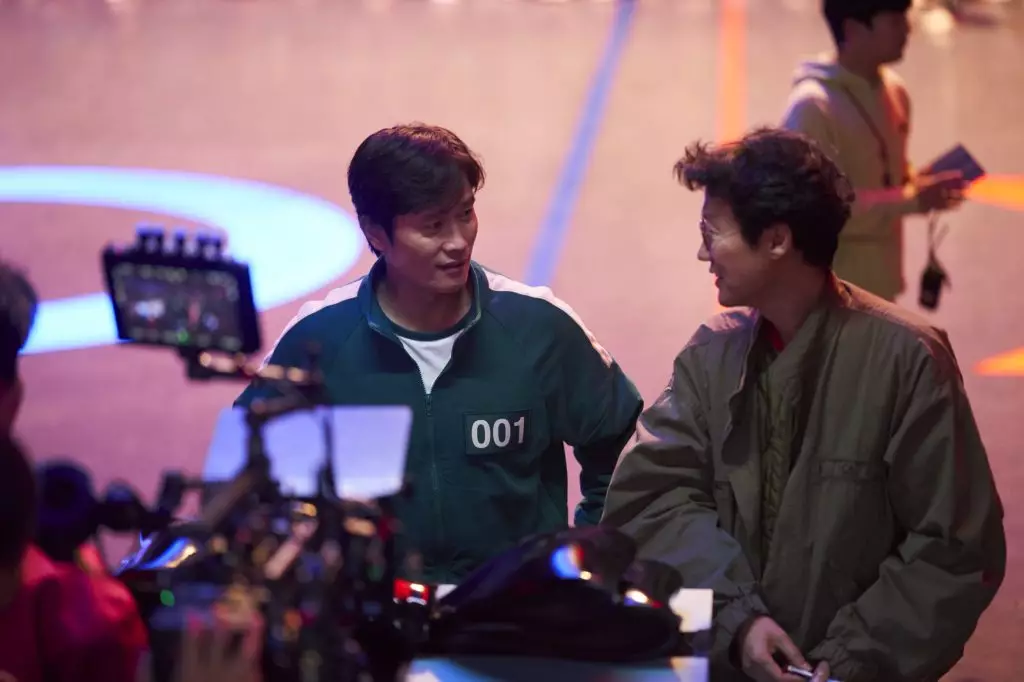The phenomenon that is “Squid Game” has kept audiences captivated, particularly with the unveiling of its second season, where veteran actor Lee Byung-hun reclaims and expands his role significantly. Initially cast as the enigmatic Front Man, In-ho, his journey takes a riveting turn as he sheds this identity to reveal Player 001. This character transformation not only enhances the narrative but also underscores the multi-dimensional performances Lee brings to the screen. Unlike typical sequels that might cling to a singular narrative arc, “Squid Game Season 2” invigorates its plot, integrating Lee’s character in a way that profoundly resonates with the audience’s understanding of loyalty and betrayal in the cutthroat environment defined by the games.
Behind the Curtain: Lee Byung-hun’s Insights
In a revealing conversation, Lee shared his early interactions with director Hwang Dong-hyuk, highlighting that even at the script’s inception, the vision for Season 2 was still forming. Lee’s inquiry into the direction of his character went unanswered, signaling the creative fluidity essential in the artistic process. He reflects, “When I read the completed script later, I was quite shocked.” This reaction showcases Lee’s ability to appreciate the complexity of storytelling, which often deviates from initial expectations. It’s a testament to Hwang’s creative prowess that pushed boundaries and reshaped what audiences anticipated from the narrative.
Despite an extensive career in Hollywood — featuring notable roles in blockbuster titles, such as the “G.I. Joe” series — walking the red carpet for “Squid Game” represented a moment of cultural reconnection for Lee. At the premiere, he experienced an emotional surge as he stood beside his peers promoting a project deeply rooted in Korean language and culture. “It was a really unbelievable moment,” he remarked. This sentiment reflects a broader narrative of return and resurgence; it highlights how the global success of Korean cinema has paved the way for a renaissance of national pride. For Lee, this experience wasn’t just a personal triumph but an evocative reminder of the journey he has undertaken and the platforms that exist for Korean artists on the global stage.
Unprecedented Success
Since its debut on December 26, 2024, “Squid Game Season 2” has dazzled audiences, achieving record-breaking viewership numbers. It held a firm grip on Netflix’s Top 10 List for non-English shows for an impressive four consecutive weeks, amassing a staggering 165.7 million views. These figures not only reinforce the escalating popularity of the series but also its position as a staple in promoting non-Western narratives in mainstream media. Lee is not only a key player in this success; he serves as a symbol for the growing recognition of Korean content worldwide. Reflecting on this evolution, it is clear that the cultural boundary previously seen in global cinema is dissolving in favor of more inclusive storytelling.
The intersection of Lee’s multiple identities — be it Front Man, In-ho, or Player 001 — sheds light on the intricate dynamics of power and morality within “Squid Game.” Among his many memorable scenes, Lee identifies one crucial moment where his character engages in a strategic conversation with Gi-hun before a rebellious upheaval. This gathering signifies more than just plot progression; it embodies the tension between sacrifice and camaraderie. Lee’s ability to portray this delicate balance enriches the narrative, allowing viewers to engage with the moral dilemmas faced by characters in extreme situations. In this way, Lee’s performance transcends mere acting; it resonates with themes of humanity, loyalty, and the essence of choice — core motifs that have made “Squid Game” not just a social phenomenon but a critical commentary on societal and personal intricacies.
The Road Ahead
Looking beyond “Squid Game,” Lee Byung-hun is also set to make waves with his upcoming role in Park Chan-wook’s “No Other Choice.” His versatility as an actor continues to expand, showing audiences that he is far from a one-dimensional performer. As he embraces new projects, it is evident that Lee’s narrative in the film industry, particularly in the context of Korean storytelling, is intricately tied to the global conversation surrounding representation, identity, and artistry. The path ahead for Lee appears promising, yet the impact of his current works will undoubtedly linger, reminding viewers of the compelling narratives that transcends cultural barriers while spotlighting the richness of Korean cinema.
